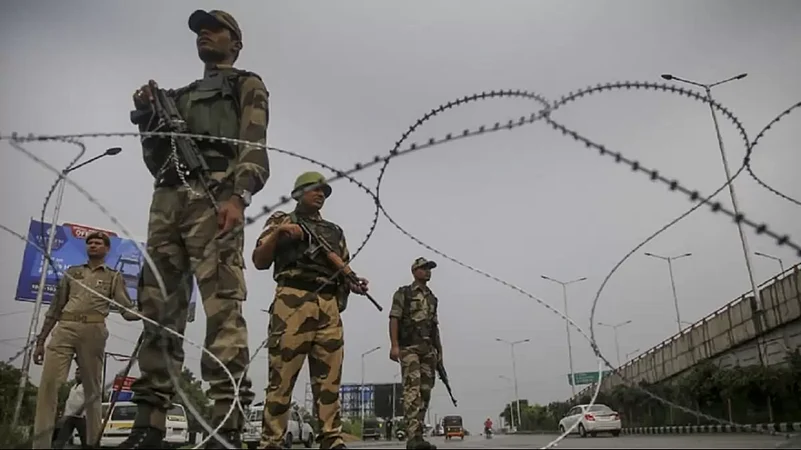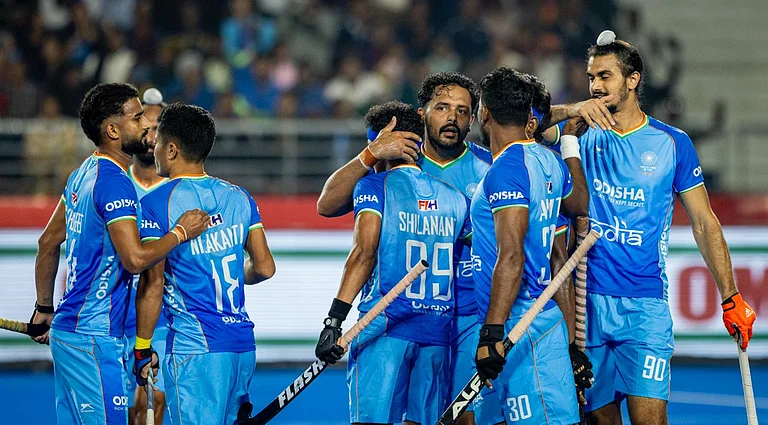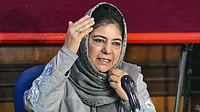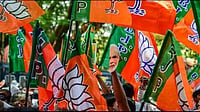As the Financial Action Task Force (FATF), a global money laundering and terrorism financing watchdog removed Pakistan from a list of countries under “increased monitoring”, also known as the “grey list”, this Friday, security agencies say its impact on J&K can only be gauged next year.
Senior police officials pleading anonymity say security forces have complete control of the situation in Jammu and Kashmir with over 500 militants killed in J&K in the past three years and the ceasefire along the LoC intact with infiltration almost at zero level. However, they say there could be an escalation in the violence in the Valley if the ceasefire agreement fails and infiltration takes place.
The police say over 500 militants have been killed in Kashmir since 2019 while the number of security force personnel and civilians killed in militant-related violence has significantly come down following the abrogation of Article 370.
In 2021, 182 militants were killed in J&K with 171 in Kashmir and the rest in Jammu. Of 182, 152 were local militants. This year alone 161 militants including 36 foreigners have been killed in the Valley. While 23 security forces personnel including 12 cops have also been killed.
After the BJP government removed Article 370 on August 5, 2019, amid communication blockade, security clampdown, and arrest of thousands including three former Chief Ministers, militant violence in the Valley contrary to apprehensions and assumptions, infiltration has gone down and a large number of local militants were killed.
The government has already written off separatist politics in Kashmir Valley and the mainstream political parties are being been also cornered in the Valley.
Last month Director General of Police (DGP) Dilbag Singh said the separatist Hurriyat Conference is finished in Jammu and Kashmir. “Hurriyat Conference is finished in Jammu and Kashmir. To keep it alive, its chapter was opened in Pakistan and they are giving ‘bandh’ calls from there,” the DGP said.
The ceasefire agreement between India and Pakistan contributed to the reduction in the violence in Kashmir as no big incident has taken place. On Feb 25, 2021, amid heightened tension between India and Pakistan, the DGsMO of both countries issued a joint statement, announcing ceasefire along LoC.
The statement said, “In the interest of achieving mutually beneficial and sustainable peace along the borders, the two DGsMO agreed to address each other’s core issues and concerns which have the propensity to disturb the peace and lead to violence. Both sides agreed to strict observance of all agreements, and understandings and cease firing along the Line of Control and all other sectors with effect from midnight February 24-25 Feb 2021.”
This was the first time since the 2003 ceasefire agreement that both countries agreed to adhere to the ceasefire. Many analysts presumed that the ceasefire will not last long. But the events are proving them wrong.
Last year, according to the Army, not a single ceasefire violation has been reported along the LoC or the International Border after the reaffirmation of the ceasefire agreement. This year, however, the army issued on August 25 issued a statement that foiled “an infiltration attempt by Pakistani terrorists in forward areas of Uri Sector in North Kashmir's Baramulla district by killing three terrorists and recovered a large cache of war-like stores.”
According to Defence Spokesperson Srinagar, the operation was launched based on specific inputs from Army Intelligence agencies. The army said, “electronic surveillance and intelligence-based operations continue to be the mainstay of Indian Army operations against Pakistan-sponsored terror in Jammu and Kashmir.”
Up to Feb 24 from January 2021, otherwise, the Indian army said, 740 ceasefire violations were recorded from the Pakistani side. In 2004, there had been only one ceasefire violation. The situation at present seems much better on the LoC and the IB.
In 2019 over 3,200 instances or an average of nine ceasefire violations were reported daily. Of these, 1,565 ceasefire violations took place since August 2019, after the BJP government abrogated Article 370. The year 2020 saw 5,100 incidents of ceasefire violations, an all-time high in the past 17 years killing 36 people and wounding 130 others.
However, many in the police say radical militant groups might try to escalate the violence in the Valley through infiltration attempts now.
The government has hardened its stance since the removal of Article 370 refusing to hold talks with anyone including Pakistan. On October 5, addressing a rally in Baramulla district, Union Home Minister Amit Shah ruled out holding any dialogue with Pakistan. He said the Modi government would wipe out terrorism from Jammu and Kashmir and make it the most peaceful place in the country.
Shah blamed the families of the Abdullahs (National Conference), Muftis (PDP) and Nehru-Gandhi (Congress) for the alleged underdevelopment of Jammu and Kashmir as they ruled the erstwhile state most of the time since the country's independence in 1947.
“Some people say we should talk to Pakistan. Why should we talk to Pakistan? We will not talk. We will talk to the people of Baramulla, we will talk to the people of Kashmir,” Shah said.
Lieutenant Governor of J&K Manoj Sinha has been saying his government will not buy the peace in J&K but it will establish the peace. He says no one will be allowed to disrupt the peace in Jammu and Kashmir and those hatching conspiracies to “destabilize the peace will have to pay a heavy price.” He says J&K police have offered sacrifices in establishing peace in the region and “rooting out terrorism and separatism.”
Sinha says in the last three years, huge success has been achieved to wipe out militancy. “We have succeeded to a large extent in rooting out the militancy and separatism,” he says, adding that it was due to the great contribution of police. “We committed to providing the police force with all the latest gadgets and innovative means to fight terrorism and other challenges related to it,” he said.
“Terrorism is on its deathbed and won’t survive for long,” Sinha says. Security experts say the coming spring in 2003 will be an indicator of whether militancy will increase in J&K or not.


























